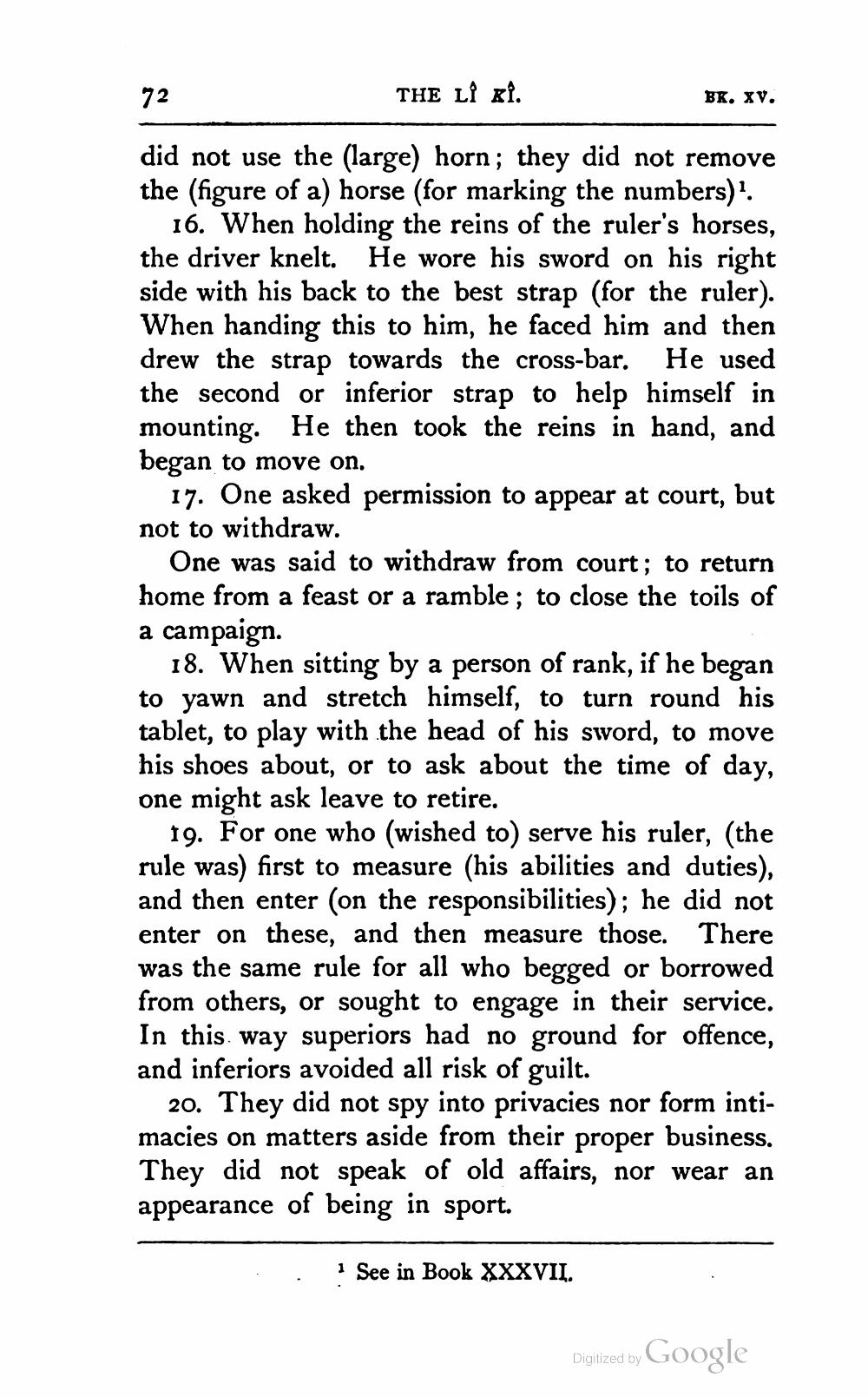________________
72
THE LỄ KÍ.
BK. XV.
did not use the (large) horn; they did not remove the (figure of a) horse (for marking the numbers).
16. When holding the reins of the ruler's horses, the driver knelt. He wore his sword on his right side with his back to the best strap (for the ruler). When handing this to him, he faced him and then drew the strap towards the cross-bar. He used the second or inferior strap to help himself in mounting. He then took the reins in hand, and began to move on.
17. One asked permission to appear at court, but not to withdraw.
One was said to withdraw from court; to return home from a feast or a ramble; to close the toils of a campaign.
18. When sitting by a person of rank, if he began to yawn and stretch himself, to turn round his tablet, to play with the head of his sword, to move his shoes about, or to ask about the time of day, one might ask leave to retire.
19. For one who (wished to) serve his ruler, (the rule was) first to measure (his abilities and duties), and then enter (on the responsibilities); he did not enter on these, and then measure those. There was the same rule for all who begged or borrowed from others, or sought to engage in their service. In this way superiors had no ground for offence, and inferiors avoided all risk of guilt.
20. They did not spy into privacies nor form intimacies on matters aside from their proper business. They did not speak of old affairs, nor wear an appearance of being in sport.
i See in Book XXXVII.
Digitized by Google




